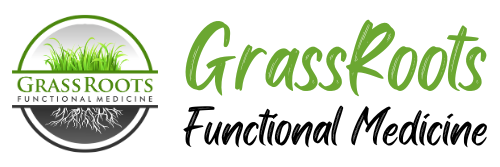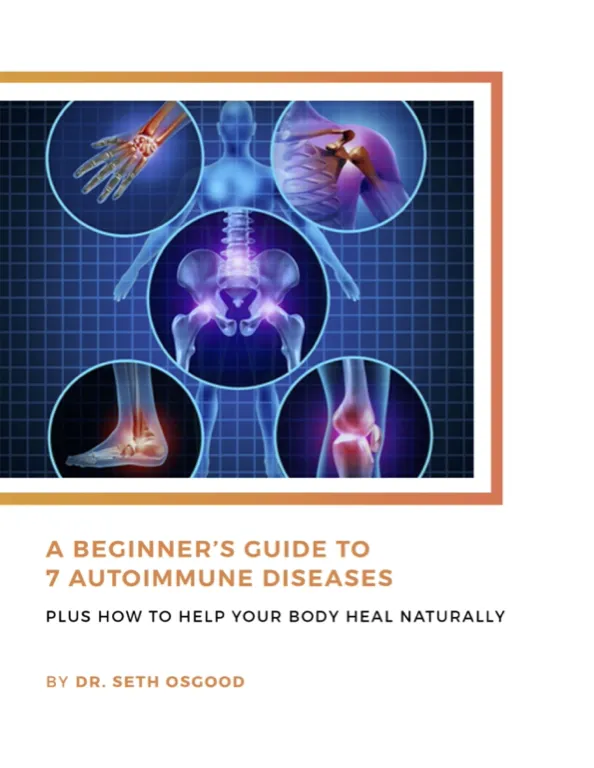It’s no secret that healing your gut is hugely important to restoring your health. There is also no shortage of articles and videos online explaining why and offering tips to do so.
However, sometimes sorting through all of that information can be confusing or conflicting. Maybe you’re not sure where to begin, what to prioritize, or you’ve covered the basics and are looking for more advanced strategies to try.
In this guide, I’ll walk you through research-backed strategies to support and repair your gut, from beginner to advanced steps.
How to Use this Guide (without Becoming Overwhelmed)
While comprehensive, this guide is not meant to be overwhelming! Please do not feel you need to make all of these changes at once. In fact, I don’t recommend that. My goal is to arm you with tools to keep in your toolbox and use as needed, based on what feels right and is indicated for you.
Within each category, I have listed the strategies in priority order based on what I have found to be the most impactful for patients. Start at the top of each category, implement the changes, and then add in others if you find you need more support.
Optimize Your Diet
This is far and away the most impactful step you can take in improving your gut health, and your overall health for that matter. The food you eat has an enormous power to heal or to hurt and you have three opportunities every day (plus snacks) to choose healing!
1. Complete an Elimination Diet
Start by removing toxic and inflammatory foods that you may be sensitive to. For two to four weeks, you’ll remove the list of foods below and allow your inflammation to return to baseline.
Toxic Foods:
- Processed and junk foods
- Refined sugar and artificial sweeteners
- Alcohol
- Caffeine
Inflammatory Foods:
- Gluten
- Dairy
- Soy
- Corn
- Eggs
- Nightshades (peppers, tomatoes, eggplant, white potatoes)
*If you have an autoimmune condition, you may also want to remove all grains and legumes during the elimination phase, as they can be problematic to the immune system.
After two to four weeks, introduce each of the inflammatory foods one at a time by eating it three times a day for three days. This method bombards your system with the food to help you more definitively determine if it is problematic for you. If you have a reaction to a food, keep it out of your diet. You may also find it helpful to do at-home food sensitivity testing to pinpoint your trigger foods.
The toxic foods can be reintroduced sparinigly (not with the bombardment method above) to gauge your reaction. This step is optional, as many patients find they feel much better without them.
2. Eat a Wide Variety of Colors, Fiber & Resistant Starch
When it comes to dietary changes, we sometimes get tunnel vision and focus only on eliminating the problem foods. It’s equally important to prioritize the good nutrients and foods that will help your gut repair itself.
Eat plenty of fiber and resistant starches to feed your good gut bacteria (probiotics). These include green bananas, asparagus, cooked and cooled rice or potatoes, garlic, flaxseeds, chia seeds, oats, tigernuts, and chicory root.
A rainbow of colors on your plate means a wide variety of nutrients and antioxidants from fruits and vegetables. This fosters a diverse microbiome and provides the nutrients for gut healing.
3. Cook Your Vegetables
Salads, veggie sticks, and leafy greens are packed with nutrients, but all of those raw vegetables take a lot of work to digest. As you replenish your enzymes and stomach acid, go easy on them and focus on cooked vegetables and smoothies, which are already partially broken down.
4. Eat Mindfully
We often inhale our food while multitasking or sitting in front of a screen. This is not how we were meant to eat and can set you up for poor digestion! Chewing releases saliva and digestive enzymes that break down your food and help you absorb nutrients.
Instead of rushing through a meal or eating on the go, use it as an opportunity to pause. Eat slowly, while chewing well, in a peaceful environment (outdoors is a great choice!).
Restore the Ingredients for Digestion & Gut Healing
While supplements aren’t always necessary, they can help speed up recovery and jumpstart your progress. Here’s where to start.
1. Probiotics
Probiotics (the good bacteria in your gut) help you digest and absorb your food. They also support immune function, balanced mood, thyroid function, hormone balance, and so much more.
Many people have altered or depleted populations of probiotics due to antibiotic use, stress, alcohol consumption, and a lack of dietary diversity.
I recommend a daily probiotic supplement with 30-50 billion CFUs (colony-forming units) if your goal is to maintain microbiome health. If you are repairing leaky gut or overcoming infections, a more concentrated probiotic may be recommended.
2. Postbiotics
Postbiotics are not as well known, but new research suggests they are responsible for many of the benefits previously attributed to probiotics. This is because they are what probiotics produce when they feed on prebiotics.
As good bacteria ferment fiber in your colon, they create short-chain fatty acids, including butyrate and propionate, that act as an energy source for the cells lining your colon.
A postbiotic supplement is a great choice for anyone dealing with chronic inflammation, particularly in the digestive tract.
3. Enzymes and HCL
Your GI tract relies on enzymes and acids to break down and digest your food. If you are frequently gassy, bloated, or experience reflux after meals, you may be low in these key ingredients for digestion.
Restoring them ensures that food isn’t left sitting in your gut undigested to feed pathogenic bacteria and cause digestive issues.
I recommend a supplement called DigestXyme, which contains a comprehensive blend of digestive enzymes and bile acids to break down carbohydrates, fats, and proteins, including gluten and casein peptides. Betaine HCL is helpful if you deal with reflux and suspect low levels of stomach acid. Not sure if you’re low in HCL, here’s a quiz to help you find out.
4. GastroMend
If you have developed intestinal permeability, also known as leaky gut, it’s important to repair the damage to your intestinal lining. There are several nutrients and herbs that help calm GI inflammation, seal and rebuild the intestinal barrier, and form a protective film over mucous membranes.
We recommend a product called RootFix GastroMend that combines 7 gut-healing nutrients, L-glutamine, glucosamine, zinc carnosine, methylsulfonylmethane (MSM)aloe vera, okra, and deglycyrrihinated licorice root.
Cultivate a Gut-Healthy Lifestyle
These strategies will build a strong foundation for overall wellness and support your gut health throughout the day.
1. Reduce Stress
Chronic stress is bad for your health every way you look at it, including gut health. It decreases microbial diversity, increases inflammation, and inhibits the digestive process.
Since stress can’t be avoided entirely, it’s important to use stress-relieving activities and mindfulness practices to minimize its impact on your health.
2. Sleep More
Getting adequate sleep allows your body to repair itself, lowers inflammation, and has been shown to improve leaky gut.
Aim for 7 to 9 hours of sleep every night and develop a healthy bedtime routine. This may include going-screen free one hour before bed, unwinding with a stress-relief practice, and sleeping in a cool, dark, quiet room.
3. Exercise Regularly
Moving your body may not be the first thing you think of when it comes to gut health, but there is a connection! Research shows it increases beneficial bacteria in your gut and overall bacterial diversity.
So go for a walk, do some yoga, join a HIIT class, or choose your favorite way to get moving. If you’re a patient and near our New Hampshire wellness center, stop by to use our Peloton Tread, bike, and free weights to break a sweat!
4. Consider Your Medications
Numerous prescription and over-the-counter drugs can negatively impact your gut health, including:
- Antibiotics: can kill off the good bacteria in your gut
- NSAIDs (such as Advil and Motrin): disrupt your microbiome and cause bacterial imbalances
- Acid-reducing drugs for heartburn: disrupt the pH balance in your gut, and have been linked with C. diff, an infection that attacks your colon
- Steroids: suppress the immune system and leave you open to gut infections.
- Birth control pills: increase your risk of Candida overgrowth.
While there is certainly a place for medications, many of these drugs are overprescribed or used as band-aids instead of addressing the root causes of the symptoms they treat.
If you are taking any of them, consider trying more natural alternatives (HCL for heartburn or Omega 3s for aches and pains) or speak with your provider about other options.
5. Stimulate Your Vagus Nerve
Your vagus nerve is one of the most overlooked factors when it comes to gut health!
It’s the main component of your parasympathetic nervous system (your rest and digest response), and is the primary highway connecting your brain and your GI tract. If your vagal nerve isn’t firing properly, it can lead to constipation, deficiencies in stomach acid or enzymes, difficulty knowing when you are hungry and full, and disruption to your neurotransmitters that affect mood and energy.
Signs of vagal nerve dysfunction include:
- Constipation
- Trouble drinking liquids or swallowing pills
- Difficulty speaking
- Erratic heart rate
- An inability to relax
I recently attended a conference and learned about a new therapeutic tool called gammaCore that activates the vagus nerve with gentle electrical stimulation through the skin. The research is really promising, and I’m excited to introduce it to our patients soon.
Other strategies to support vagal nerve function include stimulating your gag reflex with a tongue depressor, taking cold showers, gargling vigorously, and singing.
Address Imbalances & Infections
The following steps may be taken with your functional medicine provider if you’re dealing with more complex or long-lasting gut issues.
1. Get the Right Testing
If you are dealing with leaky gut, food sensitivities, or an underlying infection (such as SIBO, Candida, or intestinal parasites), you’ll need to address those with a targeted protocol.
Step one is to get the right testing so you know what you’re dealing with and can treat it appropriately.
This is where it becomes necessary to work with a functional medicine provider so they can determine which tests are indicated based on your history and symptoms. Here are a few of the tests we use most frequently at GrassRoots.
- Comprehensive Stool Test with Parasitology
- Food Sensitivity Testing (available to non-patients)
- SIBO Breath Test
- Leaky Gut Testing
2. Treat with Targeted Protocols
Once you’ve identified imbalances, intolerances, and infections you can gently kill off infections with herbs and replenish what’s missing through supplementation. Again, this is where I recommend working with a functional medicine provider for personalized guidance.
Here’s an overview of how we address the most common gut issues in our patients to give you an idea of what treatment may look like.
- Leaky Gut Protocol – Complete an elimination diet, prioritize anti-inflammatory foods, and start the supplements in our Leaky Gut Foundations Kit.
- SIBO and Candida Protocol – While following an elimination diet, limit complex carbohydrates to no more than 2 cups a day for 30 to 60 days (this is meant to be temporary, not a long-term diet!). Start the herbal supplements in our SIBO & Candida Support Kit to prune back the overgrowth microbes. If the infection is recurring, look into these causes of recurrent Candida and recurrent SIBO and try the Stubborn SIBO & Candida Kit.
- Parasite Protocol – This will depend on the type of parasite uncovered in your stool test (which flags protozoa and worms by DNA). Targeted anti-parasitic prescriptions or broad-spectrum anti-parasitic herbs may be called for, depending on the situation.
Putting it Into Action
I hope you found this comprehensive guide to repairing your gut helpful and that you are now armed with specific strategies to use at home! Remember, little changes make a big impact over time. Start small if you need to and add one one strategy at a time.
If you’re ready for personalized guidance and a comprehensive approach, our team can work with you one-on-one in our Adaptation Program. Check out our program page for a deeper dive into the tools and support offered, then request a free discovery call to see if it’s the right fit for you.
About the Author: Dr. Seth Osgood is a Doctor of Nursing Practice, Board Certified Family Nurse Practitioner and Institute of Functional Medicine (IFM) Certified Practitioner. Dr. Osgood received his post-graduate training in Functional Medicine through the IFM and from working with Dr. Amy Myers. He has helped people from around the world improve their health utilizing a Functional Medicine approach.





